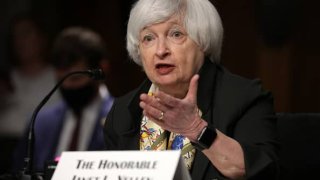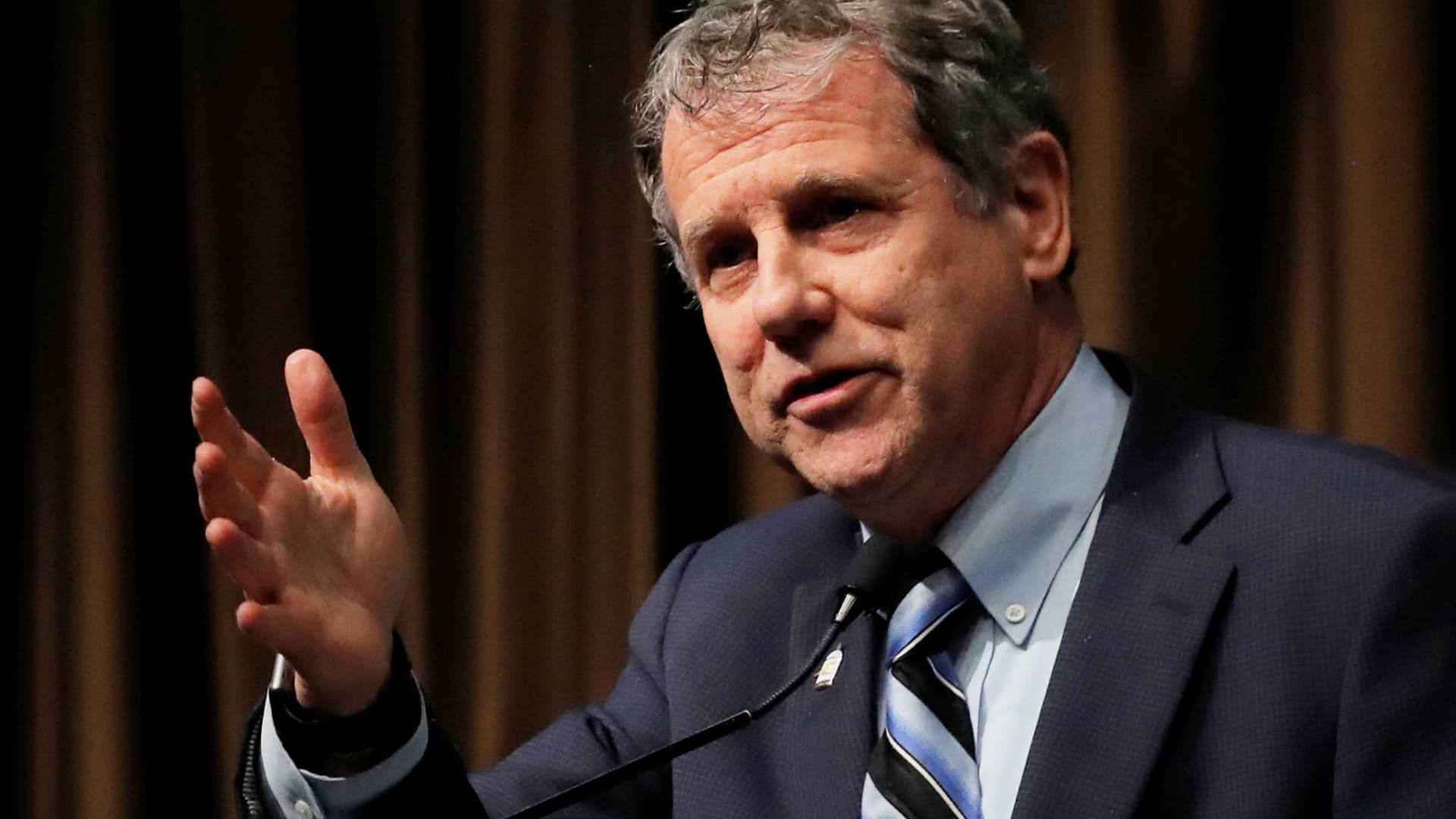
- Treasury Secretary Janet Yellen believes the U.S. financial system is in working order, but wouldn't be surprised to see market turbulence linger.
- "There is the potential for continued volatility and unevenness of global growth as countries continue to grapple with the pandemic," Yellen said in prepared remarks.
- Her testimony before Congress on Tuesday will amount to a review of the Financial Stability Oversight Council's 2021 report, which the Treasury Department published in December.
Treasury Secretary Janet Yellen believes the U.S. financial system is in working order, but that Russia's invasion of Ukraine and China's Covid-19 lockdowns are making some goods more expensive.
Yellen, set to testify before the Senate Banking Committee on Tuesday, said she and other top financial regulators wouldn't be surprised to see market turbulence keep up into the summer.
"There is the potential for continued volatility and unevenness of global growth as countries continue to grapple with the pandemic," Yellen said in her written testimony, which was released by the committee ahead of the hearing.
Get Philly local news, weather forecasts, sports and entertainment stories to your inbox. Sign up for NBC Philadelphia newsletters.
"Russia's unprovoked invasion of Ukraine has further increased economic uncertainty," she said. "The U.S. financial system has continued to function in an orderly manner, though valuations of some assets remain high compared with historical values."
U.S. stocks sank again on Monday as the broad S&P 500 index added to its longest losing streak since mid-2011 and touched a one-year low as rising interest rates fueled worries of far-tighter monetary conditions.
Money Report
Despite the references to the Russian assault on Ukraine, Yellen's forthcoming testimony will amount to a review of the Financial Stability Oversight Council's 2021 annual report, which the Treasury Department published in December.
Yellen said the council's members want to ensure banks and other financial businesses better understand their climate-related risks through improved data and stronger disclosure requirements from publicly traded companies.
The Treasury secretary also referred to council's studies on digital assets, which she described as full of opportunity and potential risk.
"With respect to digital assets, new products and technologies may present opportunities to promote innovation and increase efficiencies. However, digital assets may pose risks to the financial system," she said in the prepared remarks. She added the council, which was created in response to the 2008 financial crisis to identify emerging threats to the broader economy, is drafting a report on the risks and "regulatory gaps."
The report, which provides insight on the health of the financial system from such organizations as Treasury, the Securities and Exchange Commission and the Federal Reserve, arrived prior to Moscow's invasion and Beijing's crackdown on Covid cases.
Both of those developments have led to supply chain headaches as the war in Ukraine drives up the cost of oil, wheat and corn, and China's strict lockdowns whack manufacturers and add to labor shortages.
When the Treasury Department debuted the report on Dec. 17, regulators noted that equity markets had reached all-time highs thanks in part to "low" interest rates.
Since then, the S&P 500 is down almost 13%, the per-barrel price of oil is up by about $30 and the yield on the 10-year Treasury note has climbed to north of 3.2%, its highest point since November 2018.

In addition, inflation fears have grown and the macroeconomic environment has whipsawed thanks to Russia's attack on Ukraine.
But while the events of the first quarter of 2022 may make some portions of FSOC's report seem stale, concerns about inflation have held steady.
Investors, now more fearful of a recession in late 2022 or 2023, say the Fed needs to be careful as it raises interest rates and not to weigh on economic activity any more than necessary to cool inflation.
Banking Committee Chair Sen. Sherrod Brown, D-Ohio, and ranking member Sen. Pat Toomey, R-Pa., will likely question Yellen on Tuesday to assess her current thinking on such matters as inflation, the global economy, supply chain resilience and the Fed's recent move to increase the overnight borrowing rate by a half percentage point.






